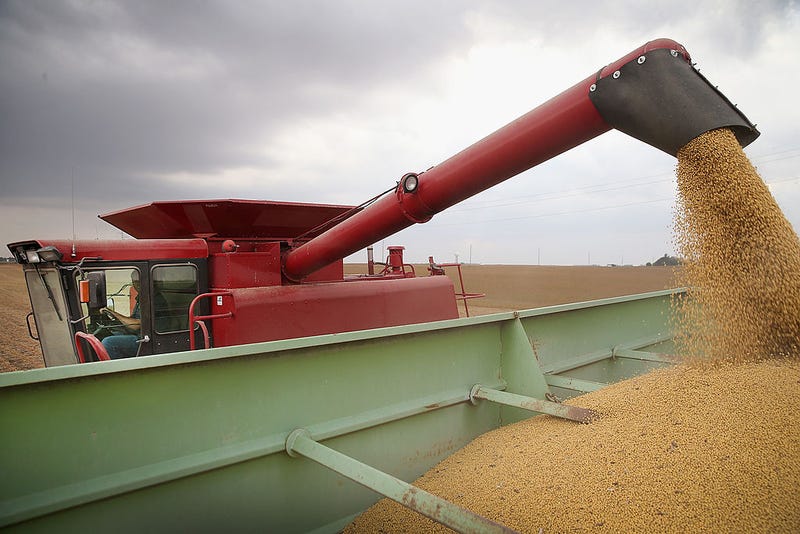
It's another threat to farmers' livelihoods according to the President of the Minnesota Farmers Union.
In a post on Truth Social, President Donald Trump says he plans to place tariffs on the goods farmers export starting April 2.
Minnesota Farmers Union President Gary Wertish says farming involves enough uncertainty and this only makes it worse.
"You know, farmers are very used to dealing with weather in the markets to some extent, things that are out of the farmer's control, that we have no control over," says Wertish. "We don't need the government throwing another thing that's all completely out of our control into the mix."
The message posted to Truth Social on Monday from the president says:
"To the Great Farmers of the United States: Get ready to start making a lot of agricultural product to be sold INSIDE of the United States. Tariffs will go on external product on April 2nd. Have fun!"
Wertish says Minnesota soybean and corn farmers will be especially hard hit. He says the move also destroys America's reliability as a trading partner with other countries, adding it's simply bad business.
"You know, the big damage is, it's destroying our reliability as a trading partner," Wertish says reacting to the president's post on Monday afternoon. "We signed various trade agreements in the past and if we're not upholding our end of the bargain, it really destroys our reliability as a trading partner and and that's the long term damage."
For American farmers, exports accounted for approximately $178.7 billion in 2023.
"Well, it sounds good, it sounds just great, but at the same time, you know, Minnesota and our farmers, we raise more than we can than we can consume locally," Wertish explains. "The markets just don't appear overnight. That's why we, whether it's crops for livestock, we're raising and growing more than we can consume locally and we rely on export markets. Putting a tariff on the export markets really does hurt farmers."
Wertish explains that farmers see this as a tax, both on exports and imports including things like potash which is a soil nutrient Minnesota farmers mostly get from Canada, and cannot get locally.
He also says blanket tariffs could be enough to push some farms out of business.
"Any damage that we do by losing the markets, it puts further downward pressure on our market that the farmer can get," Wertish says.
President Trump has quickly implemented or at least suggested he would put tariffs on other countries since taking office in January, including against Canada, Mexico and China, the biggest trade partners for the U.S.
A set of tariffs announced by Trump on Canada, Mexico and China is set to take effect on Tuesday, but he has shown he can pull back on such announcements at the last minute. That’s what he did a month ago, when he delayed implementation of the taxes on imports from Canada and Mexico.
The prospect of escalating tariffs has already thrown the global economy into turmoil, with consumers expressing fears about inflation worsening and the auto sector and other domestic manufacturers suffering if Trump raises import taxes. But Trump has also at times engaged in aggressive posturing only to give last-minute reprieves, previously agreeing to a 30-day suspension of the Canada and Mexico tariffs that were initially supposed to start in February.
The cuts made at USAID also is hurting farmers in Minnesota with Wertish telling Minnesota Public Radio recently that farms will see financial impacts from those programs going away.
“All the food that we send overseas is raised right here locally within MN. It’s directly coming from family farms," he says.
